-
Join the
Digital Meets Culture
Open Newsroom! If you have interesting news and events to point out in the field of digital cultural heritage, we are waiting for your contribution.
If you have interesting news and events to point out in the field of digital cultural heritage, we are waiting for your contribution.
-
Free text
-
-
Upcoming events
-

Step into the world of history and heritage through stunning 3D collections that bring the past to life. From pre-cinema artifacts in Girona to everyday objects and cultural emblems from the ancient oppidum of Bibracte in Burgundy, these collections … Continue reading →
 The deadline for submitting photographic projects for the AIPAI PHOTO CONTEST has been extended
The deadline for submitting photographic projects for the AIPAI PHOTO CONTEST has been extendedThe deadline for submitting photographic projects for the 3rd edition of the AIPAI PHOTO CONTEST, the photography contest organized by the Italian Association for Industrial Archaeological Heritage ETS, has been extended to October 31. The contest is organized in collaboration with DICEA … Continue reading →
 Brussels, November 13th and 14th, 2024
Brussels, November 13th and 14th, 2024On November 13th and 14th, OpenLab.brussels is hosting the international conference “Creating Knowledge through Participatory Research” in Brussels. The OpenLab.brussels is a joint venture of ULB-VUB dedicated to participatory research. It aims to mobilize our academic community and public or private stakeholders … Continue reading →
Topic: cultura

CULTURA Virtual Research Environment, three Cultural Heritage Collections, Personalisation, Entity Relationship Extraction, Entity Oriented Search, Text Normalization, Network Visualisations in the Drupal Module, Desktop Premapper, Web Premapper, FAST Annotation Service, Content Annotation Tool, Equalia, … Continue reading

IRCDL is a yearly deadline for Italian researchers on Digital Libraries related topics. The University of Padua, who organised the 2014 edition of the event, presented and disseminated the final results of the CULTURA project to the participants. Continue reading

The final results of the CULTURA project have been presented and disseminated at the 2nd AIUCD Annual Conference 2013 on Collaborative Research Practices and Shared Infrastructures for Humanities Computing, hosted by the Department of Information Engineering of the University of Padua. Continue reading
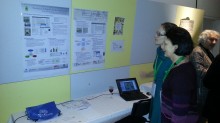
Two CULTURA posters have been presented at the NODEM Conference in Stockholm on 3 December 2013. Numerous discussions with conference participants raised awareness of the CULTURA project and its approach and solutions. Continue reading
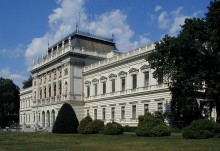
On 21st January 2014, in cooperation with the Austrian Centre for Digital Humanities at the University of Graz the TUG team had the opportunity to give a presentation on the CULTURA project to humanities students in the lecture ‘Basic Module: Digital Humanities’. Continue reading
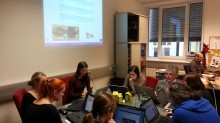
On 10th January 2014 a half-day workshop was conducted at the Austrian Centre for Digital Humanities (ZIM) at the University of Graz. Workshop participants were members of the centre, as well as researchers from the Dialect Cultures project. Continue reading

Analysis of the research tasks that were difficult or impossible with the IPSA website, but which CULTURA makes possible and easy. Continue reading
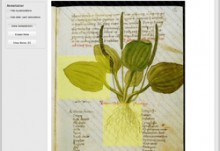
Text, illustrations, paintings and – more recently – photographs, video and audio recordings, much of them now digitised, recount many aspects of European history, from major international events to personal stories. Now, new technology is being brought to bear on these treasure troves of historical information, thanks to EU-funded researchers whose work promises to shed new light on the past. Continue reading
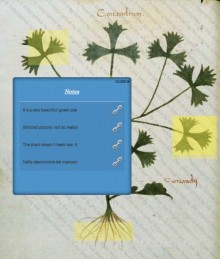
Interesting paper presented by a group of experts and researchers at the ACM Congress DocEng 2013 to introduce the main characteristics of the digital cultural collections that constitute the use cases presently in use in the CULTURA environment. Continue reading
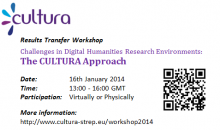
Supporting researchers in exploring and examining digitised artefacts presents many challenges in terms of understanding each researcher’s needs, performing appropriate manipulation of and uplift from content, and in presenting a suite of useful research tools to facilitate exploration. This virtual/physical workshop will use CULTURA as a case study to drive discussion by presenting demonstrations and results from the project. The outputs of this workshop will be captured and placed online. Continue reading























